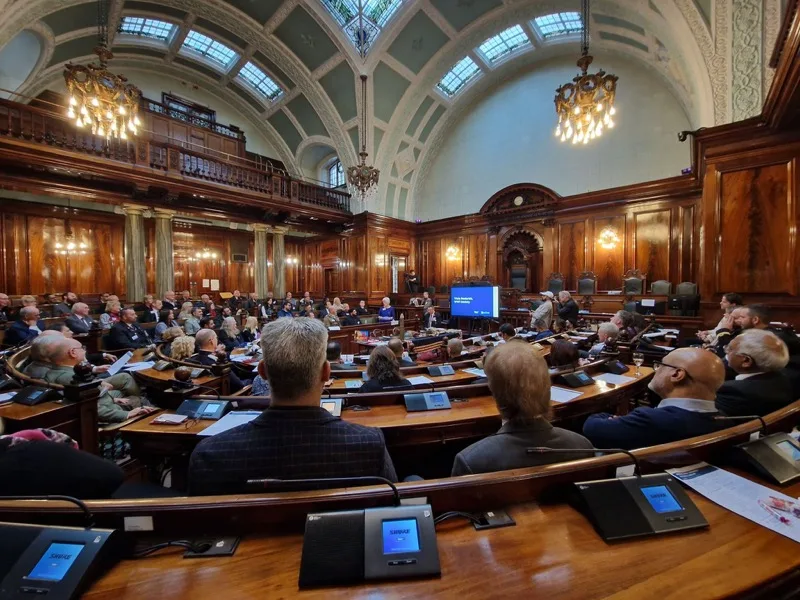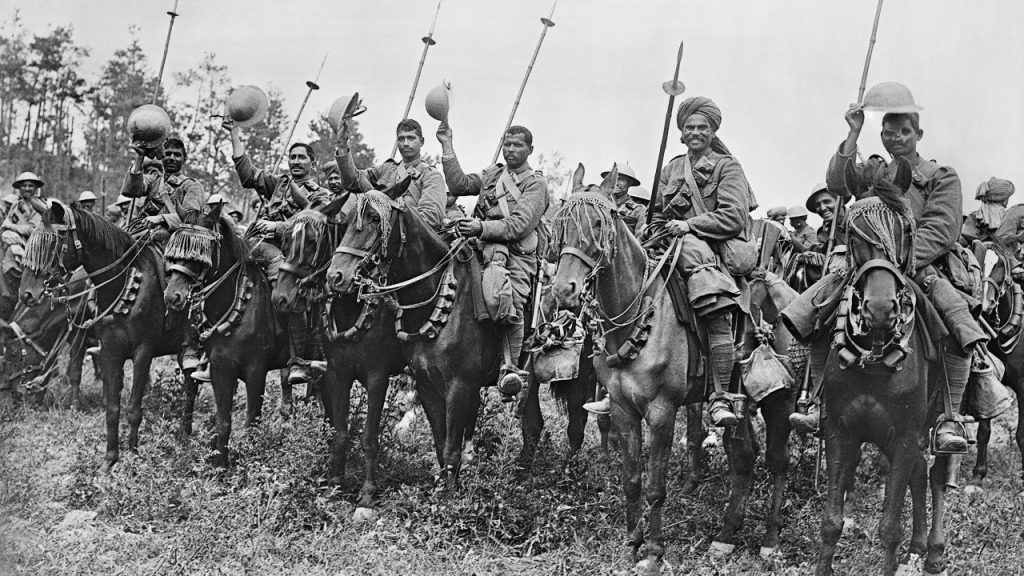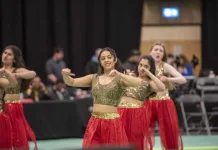
“When you go home, tell them of us and say, for your tomorrow, we gave our today” – Reading from Kohima Epitaph, North East India
Bradford has made history with the unveiling of the first Commonwealth War Memorial outside of London.
Revealed on Wednesday 6th November, the new memorial beside the Bradford Cenotaph, provides a lasting tribute to the bravery of the 5.1 million men and women from across the commonwealth who joined the World War One and World War Two efforts.
Some 1.2 million soldiers came from what are now known as India, Pakistan and Bangladesh during the First World War, in answer to the call ‘Your Empire Needs You’- including at least 400,000 Muslim soldiers serving in the British Indian Army.
Yet, a report by Commonwealth War Graves commission found that hundreds and thousands of black and South Asian troops have not been commemorated in the same way as their white comrades.




The unveiling aligns with Bradford’s designation as the City of Culture, further solidifying the city’s commitment to celebrating its diverse heritage and fostering a legacy of remembrance.
The design of the Commonwealth War Memorial, carefully crafted to reflect both history and unity, has been led by Landscape Architect Saira Ali.
Saira said: “Creating this memorial was an honour. We aimed to design a space that not only reflects the deep respect we hold for the Commonwealth troops but also serves as a place of peace and remembrance for all.

“It reinforces our commitment to remembering and uniting communities around shared sacrifices. The Memorial Garden in which it stands offers a quiet, reflective environment, where the beauty of nature complements the solemnity of the monument.”
Saira worked closely with Mahmood Mohammed, Bradford’s Safer Communities Lead, and who emphasised the memorial’s broader significance for local cohesion: “This marks a historic moment for Bradford.
“The unveiling of the Commonwealth War Memorial outside London is a testament to the profound contributions of soldiers from across the Commonwealth.”
The Commonwealth Secretariat stated: “The Bradford Commonwealth war memorial stands as a poignant testament to soldiers from across Commonwealth countries, who united in the pursuit of peace and freedom. By recognising and remembering them, we will continue to strengthen our shared values and commitment to building a better world.”

The Lord Mayor of Bradford, Cllr Bev Mullaney, led the ceremony, alongside Lord Lieutenant of West Yorkshire Ed Anderson, a representative from Commonwealth office and World War Two veteran Jack Crawford.
Cllr Mullaney said: “This is incredibly important for us as a city and district to recognise and remember the service and sacrifice of those who contributed to the UK’s war efforts from Commonwealth countries.”
The unveiling marks a momentous occasion for Bradford, enhancing the city’s legacy as a place of shared heritage and collective memory. As a central focal point for remembrance events in the district, the Commonwealth War Memorial will help foster a deeper understanding of our diverse past and the sacrifices made for our future.
Cllr Kamran Hussain, Portfolio Holder for Neighbourhoods and Community Safety, said: “This memorial is not just a symbol of remembrance but also one of unity, bringing together people from all backgrounds to honour a shared history. It stands as a powerful reminder of the strength that comes from our diverse communities.”
It is also hoped that it has a role in educating schoolchildren on the fact that people from diverse cultures and backgrounds were involved in the First and Second World Wars.

In recent days, there has been a significant pushback from numerous community figureheads stressing the importance of overdue recognition of the historic contributions of black and South Asian soldiers who fought for Britain in the world wars.
Campaigners are calling for the contributions of Asian troops to be included in schools as part of the national curriculum. This, they say will help in educating the role of Asians, and that of Muslims to British war efforts, helping tackle Islamophobia. Research conducted by British Future discovered that only 1 in 5 people know about the Muslim contribution, and almost nobody (2%) is aware of the scale of their involvement.















